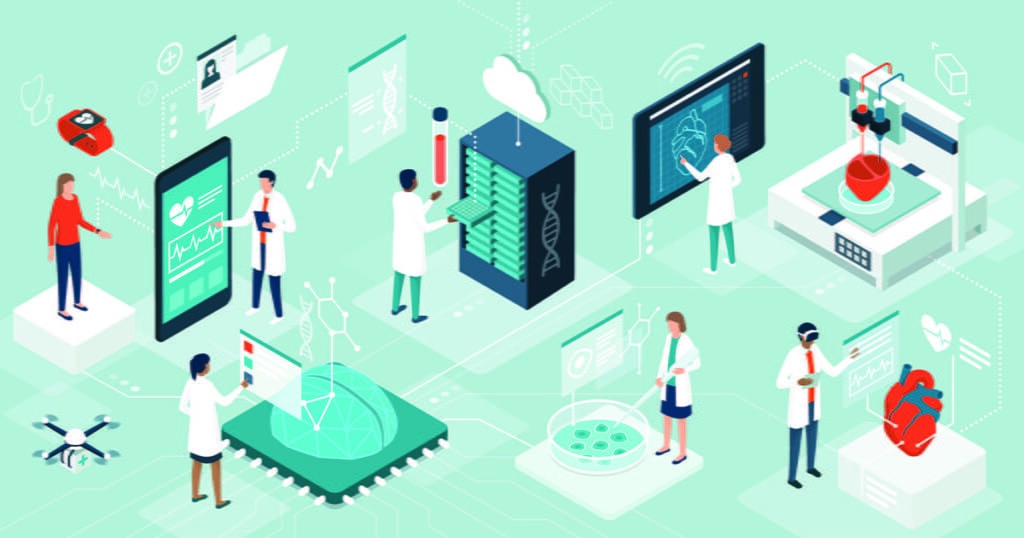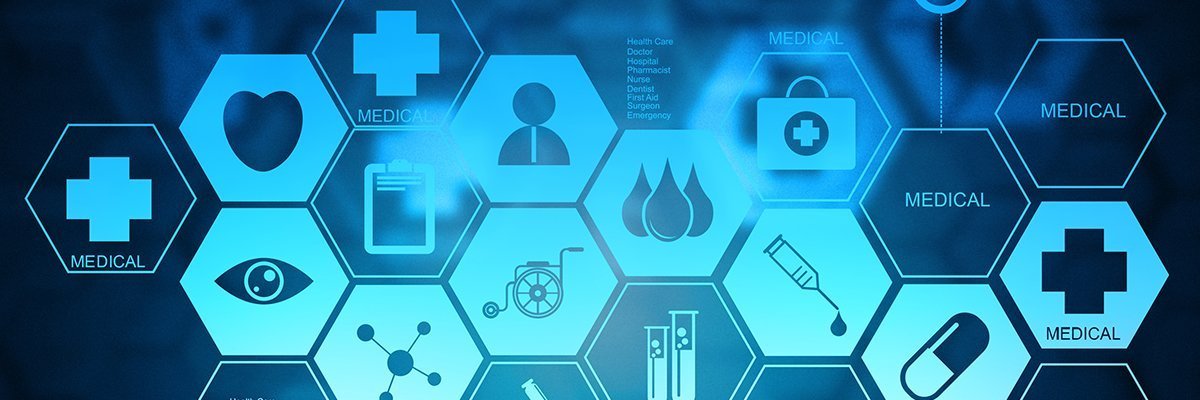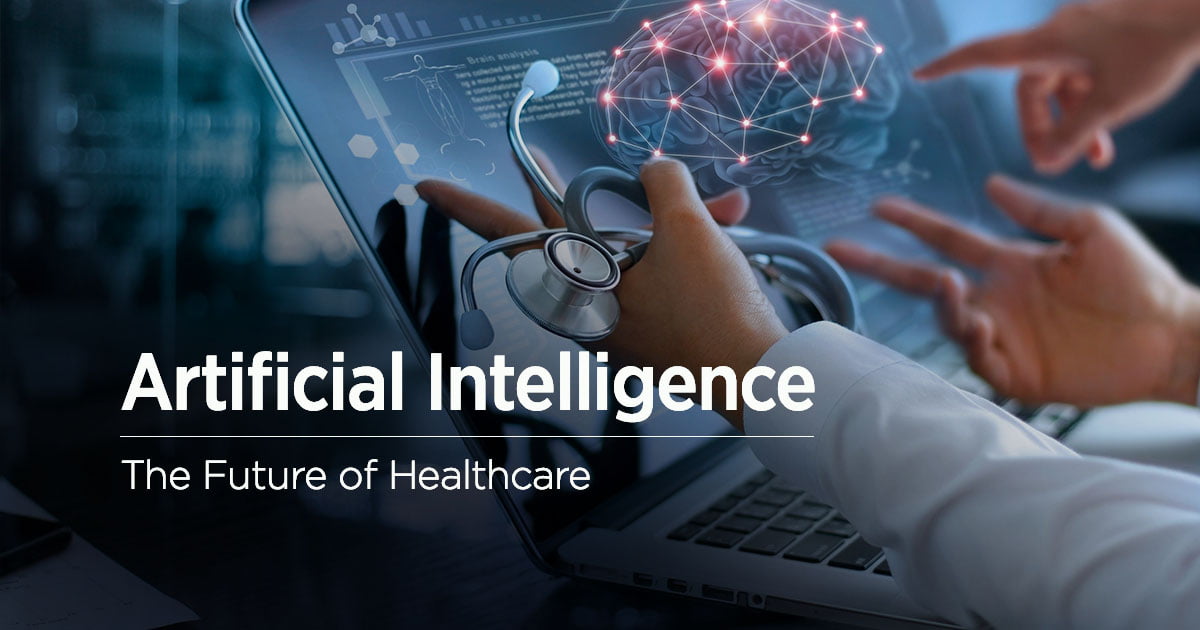

Ai NEWS IN THE HEALTH CARE SECTOR

Revolutionizing Patient Care: Top 5 AI Technologies in Healthcare
The healthcare industry is experiencing a paradigm shift, with Artificial Intelligence (AI) leading the charge. From predictive analytics to computer vision, AI technologies are transforming patient care and healthcare operations. Here are the top five AI technologies that healthcare providers are leveraging:

Predictive Analytics: AI-powered predictive analytics can analyze historical data to produce insights, improve decision-making, and optimize health outcomes. For instance, Anaplan’s Predictive Intelligence Platform uses real-time data to provide patient recommendations and forecast health outcomes.
Computer Vision: Computer vision can track patient movements, analyze behavior, and even customize treatments in real-time. Intel is one of the companies at the forefront of using computer vision in healthcare.
Chatbots and Voice Assistants: AI-powered chatbots and voice assistants are enhancing patient care by providing instant responses to patient queries, reducing wait times, and offering personalized assistance. Amazon’s Alexa is one example of a voice assistant improving patient engagement.
AI in Diagnostics: AI is revolutionizing diagnostics by predicting diseases, recommending treatments, and guiding surgical care. Imagen, a healthcare AI tech company, has developed an AI-powered diagnostic and detection software, OsteoDetect, that uses machine learning to identify wrist fractures in adult patients.
AI in Operations: AI is also improving operational outcomes for hospitals. Qventus, for example, applies AI to drive better operational outcomes, enabling hospitals to achieve a 30% reduction in excess days spent in hospitals.
These technologies are not just trends; they’re shaping the future of healthcare. Healthcare providers who leverage these AI technologies can improve patient care, enhance operational efficiency, and stay competitive. However, those who fail to adapt risk being left behind. As the saying goes, “Innovate or die.”
AI is no longer a luxury but a necessity in the healthcare industry. The future of healthcare is here, and it’s powered by AI.
Revolutionizing Patient Care: AI for Efficiency in Private Practices
In the rapidly evolving healthcare landscape, Artificial Intelligence (AI) is becoming a game-changer. For private practices, AI offers a wealth of opportunities to improve efficiency and patient care. Here are some ways medical professionals can leverage AI:

- Predictive Analytics: AI-powered predictive analytics can analyze historical patient data to produce insights, improve decision-making, and optimize health outcomes. For instance, AI can predict disease progression based on a patient’s health records, enabling early intervention and better patient care.
- Automated Administrative Tasks: AI can automate routine administrative tasks such as scheduling appointments, managing patient records, and billing. This not only improves efficiency but also allows healthcare professionals to focus more on patient care.
- AI in Diagnostics: AI is revolutionizing diagnostics by predicting diseases, recommending treatments, and guiding surgical care. Machine learning algorithms can analyze medical images to detect anomalies, leading to early diagnosis and treatment.
- Personalized Patient Care: AI can analyze patient data to provide personalized care. For instance, AI-powered recommendation engines can suggest treatments based on a patient’s health history and preferences.
- Telemedicine: AI is enhancing telemedicine by providing virtual health consultations. AI-powered chatbots can answer patient queries, provide health advice, and even monitor patient health remotely.
Implementing AI in private practices can lead to increased efficiency, improved patient care, and ultimately, better health outcomes. If you’re a medical professional looking to enhance your private practice, now is the time to embrace AI.
"Artificial Intelligence: The Future of Health Care"
Artificial Intelligence (AI) is not just a buzzword in the healthcare industry; it’s a transformative force that’s reshaping the way we approach health and wellness. From diagnostics to patient care, AI’s potential to revolutionize the healthcare sector is immense.
AI’s most significant contribution to healthcare is perhaps its ability to analyze and interpret vast amounts of data. By 2030, AI will access multiple sources of data to reveal patterns in disease and aid treatment and care. This ability to predict an individual’s risk of certain diseases and suggest preventative measures is a game-changer.
AI is also transforming the way healthcare providers approach patient care. With AI, healthcare systems can reduce waiting times for patients and improve efficiency in hospitals and health systems. AI-powered chatbots and voice assistants can provide instant responses to patient queries, reducing wait times, and offering personalized assistance.

In the realm of diagnostics, AI is making strides with its ability to predict diseases, recommend treatments, and guide surgical care. Machine learning algorithms can analyze medical images to detect anomalies, leading to early diagnosis and treatment.
AI is also making a significant impact on the administrative side of healthcare. Routine tasks such as scheduling appointments, managing patient records, and billing can be automated with AI, freeing up healthcare professionals to focus more on patient care.
The future of AI in healthcare is promising. It offers the potential to improve patient care, enhance operational efficiency, and transform healthcare delivery. However, the adoption of AI in healthcare also comes with challenges, such as data privacy and security concerns, that need to be addressed.
As we move forward, it’s clear that AI will play an increasingly important role in healthcare. The future of healthcare is here, and it’s powered by AI.

